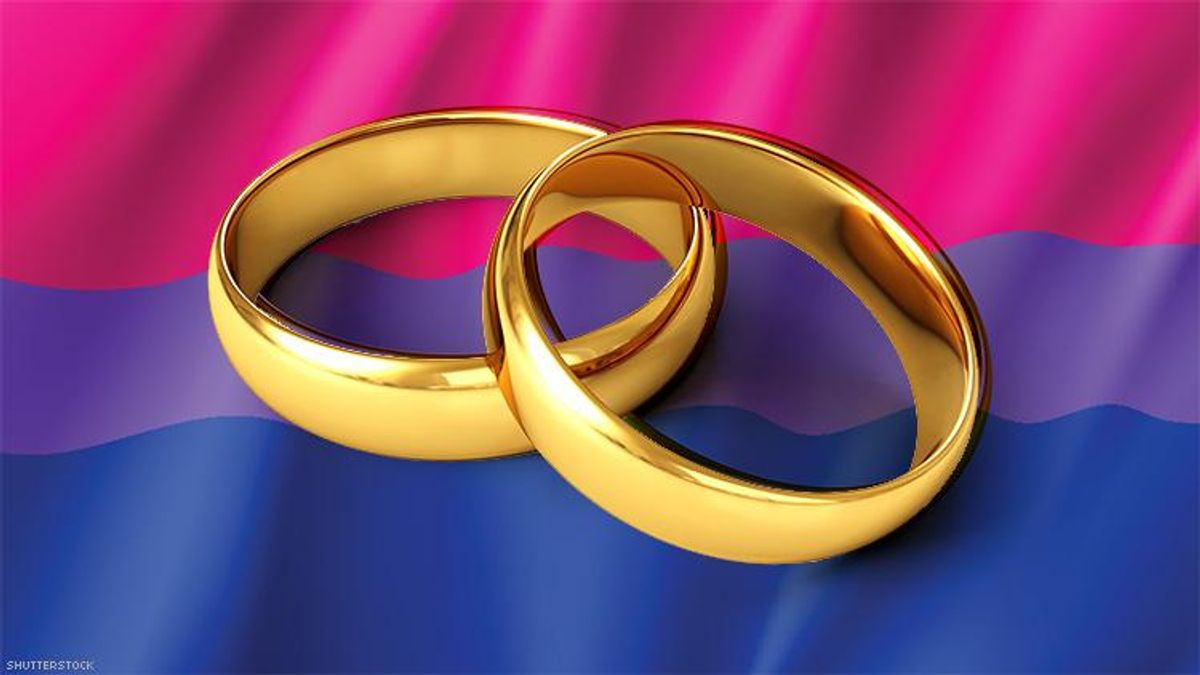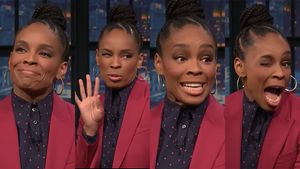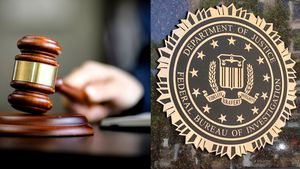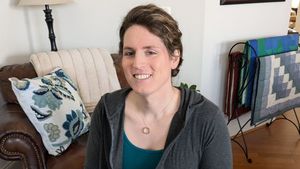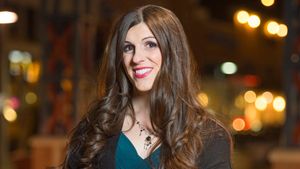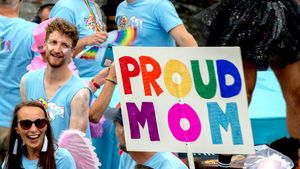I'd like to say that I always knew I was going to marry my husband, but I didn't. On our first date, I wasn't sure about him. We didn't like any of the same things. He was an art kid from Portland who didn't know who Julia Roberts was, and I was a mild agoraphobe with a takeout food addiction who substituted Gilmore Girls trivia for meaningful human relationships. However, he said he liked Some Like It Hot when I said it was one of the greatest movies ever made, and I figured that deserved a second date.
He was lying about the movie -- which five years into our relationship, he still hasn't seen -- but over time, I found that I couldn't imagine myself with anyone else but him.
On our second date, I brought him to watch me sing Patti Smith at gay bar karaoke in Williamsburg, and a coworker asked if he was "Nico's boy." He said yes, and I blushed. A week later he put together an Ikea dresser for me when it proved too complicated for my limited fluency in Swedish assembly instructions. A month after that he helped me take my foster dog to the vet when she had a seizure and I realized I was wildly unprepared for the responsibility of caring for another living being. At the three-month mark, I told him I loved him over the phone after helping him crowdfund a ticket back home to visit his family for Christmas.
I proposed twice. The first time was after my mother suffered a sudden brain aneurysm in August 2016. After spending a week painting her toenails every day by her bedside before we took her off life support, I realized the importance of having someone who could be with you in the hospital. If something like that happened to me, I needed to know someone would be there to make all the important decisions. We went down to the courthouse in Lower Manhattan, and then when I yet again failed to read a detailed list of instructions correctly -- which mandate that you have to file your marriage application 24 hours in advance -- we went back the following day.
That ceremony, which took place on a wet October morning, was just the two of us and my best friend, and we barely told anyone. When I proposed a second time -- with the help of a diamond my aunt brought back from Saudi Arabia when I was very young -- it was akin to asking, "Hey, how about we do it all over again in front of 200 of my closest friends and family members?" (Spoiler: He said yes.)
Most people get married to their partners once, but I feel like we've been getting married the entire time we've known each other without realizing it. But now that we're finally merging our lives together one last time, there's been something nagging me, and it's not runaway bride jitters. It's the idea of inviting my loved ones to a "gay wedding."
When you're bisexual and getting married to someone of the same gender, the lexicon of Emily Post-approved nuptials is stacked against you. There's no option for a "gay-bi wedding" or a "same-sex wedding in which one of the participants would like to let all attendees know that they still proudly identify as bisexual," and even searching for "bisexual wedding" on Etsy returns few results. Because I never realistically considered the possibility that I would even get married until my partner swooped into my life with his uncanny ability to always know the right thing to say when life doesn't go my way, I'd never really thought about it.
Part of the issue is that when you're a bi person in a relationship with someone of any gender, there's very little room to assert your identity as someone who isn't defined by your attachment to one person. If you're a woman dating a man, you're straight by association, and if you're a man dating anyone who isn't a cisgender woman, gay is the easiest box to toss you in. Even heterosexual men who date trans women in addition to cis women are often denied the agency to define themselves.
It all calls back to an old trope nearly every bisexual person is familiar with: that you're temporarily bi until you "pick" a side. When you do settle down with someone, you internalize the fear that that's how you'll be seen, as someone who has made their choice.
Not a single person in my life engages in this kind of reductive thinking, or I wouldn't be friends with them. Even my family members seem to get it, for the most part. But nearly every bi person I know who is in a long-term, committed relationship struggles with the fear that their choice in romantic partners makes them easier to erase -- and the only way to be seen for their full selves is if they dated one person from all of Tinder's 37 gender options. Polyamory is wonderful, but three dozen relationships sounds just plain expensive.
There's no easy solution to this predicament except to be visible in any way that feels comfortable, whether it's pink and blue wedding invitations or having a man, woman, and gender nonbinary person all burst out of a really, really large cake. My plan is to wear a small bisexual pin on my tie as we slow dance to Brandi Carlile's "The Story," a song it took us three years of intense debate to settle on.
The most important thing for me, however, is getting married to someone who accepts all of me, even the parts he can't relate to. I told him that I'm bisexual at a Hasidic Jewish pizza place on our third date -- as we tried to convince an aloof teenage waiter to fill our wine glasses with Coca-Cola. I expected the worst. I'd been told by previous suitors that how I experience attraction is a "phase" and a "hippie new age affectation," and after that, I wasn't interested in them anymore. I was just starting to like him in the hard-won adult ways they don't tell you about in 80's movies starring John Cusack, and I wanted this feeling to last.
When I came out to my future husband, he shrugged and asked if he could eat the last slice of pizza. After half a decade of getting married little by little, I still let him have the last slice every time. It seems like a fair trade.
RELATED | The 'Bi Chair' For People Who Can't Sit Straight Is Now For Sale
